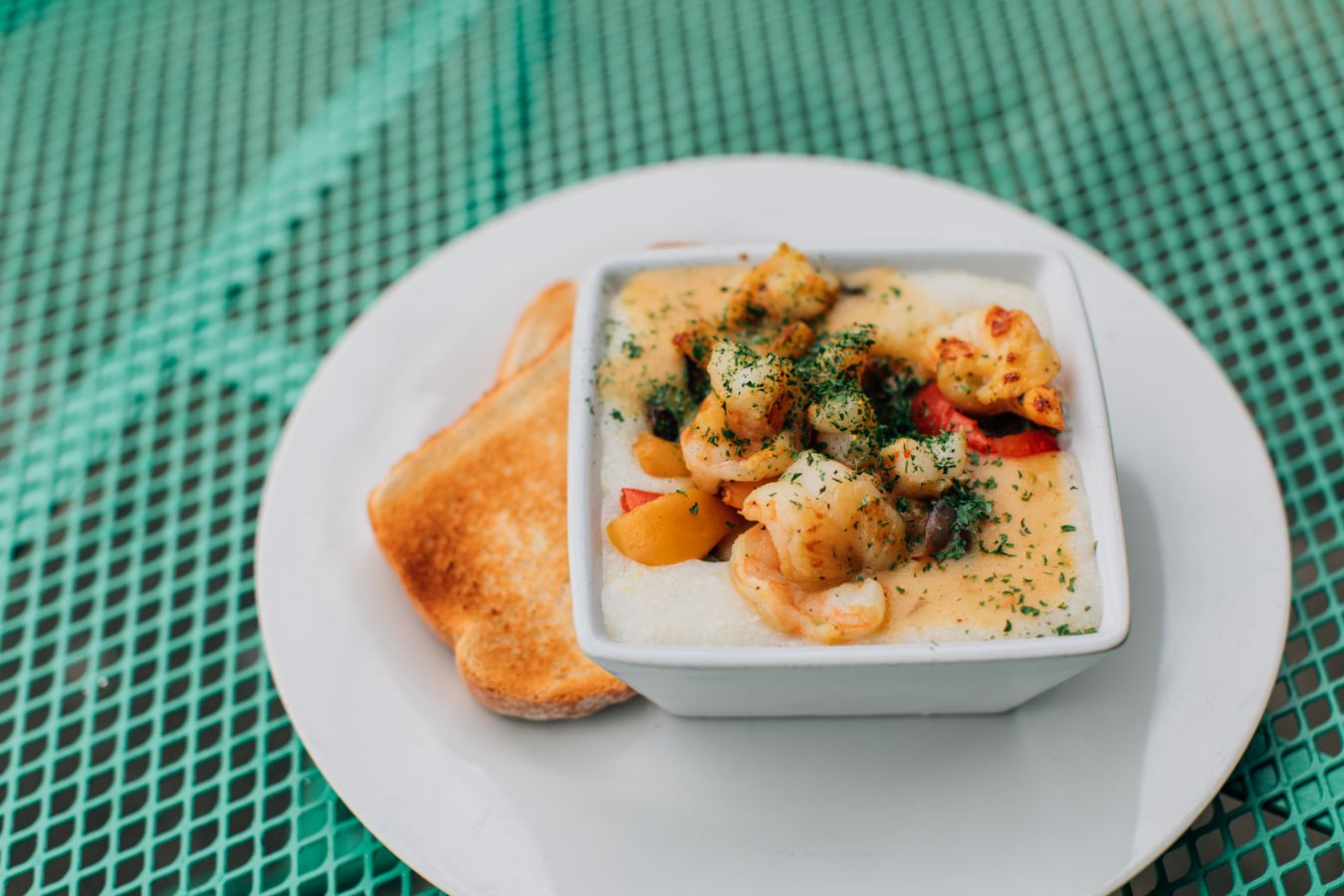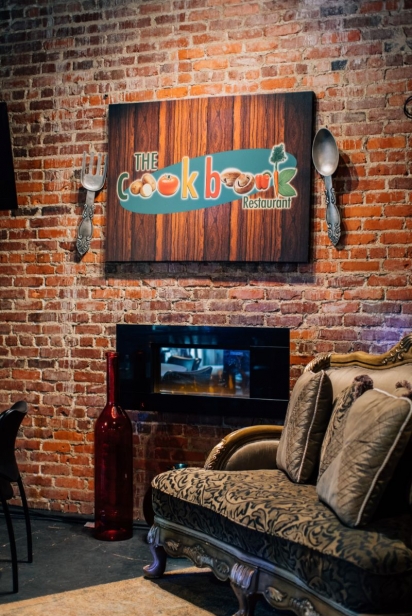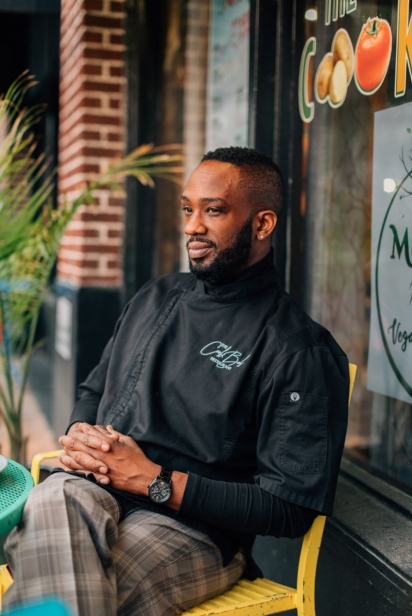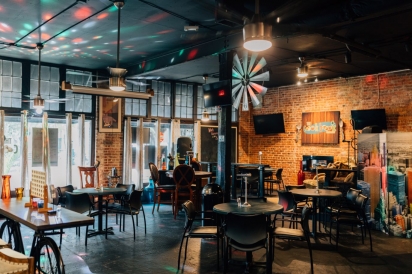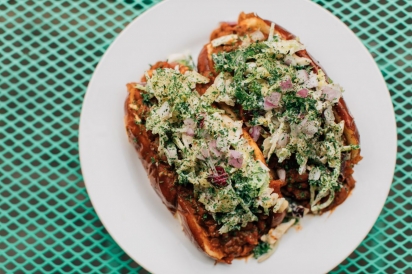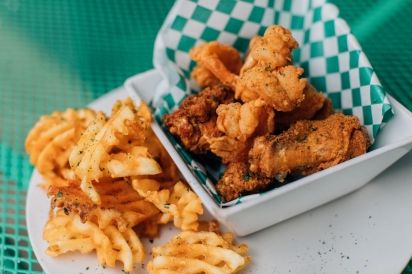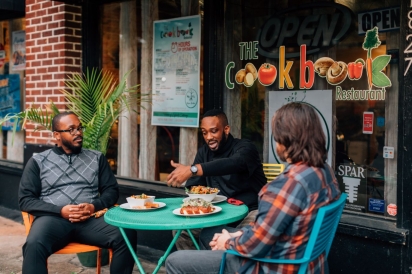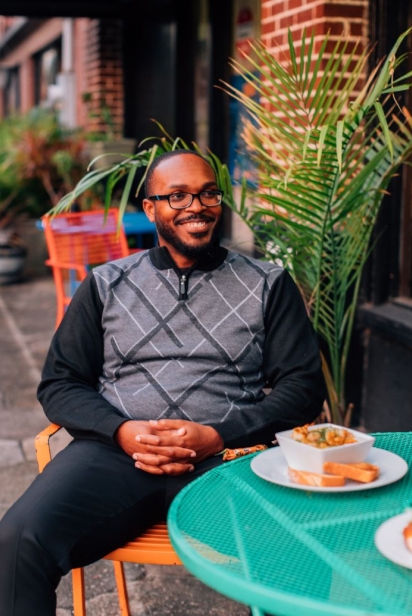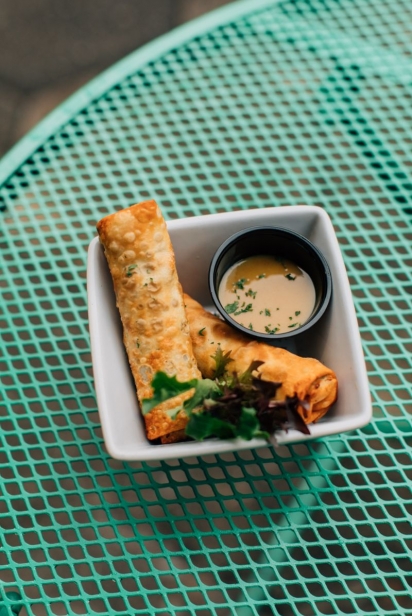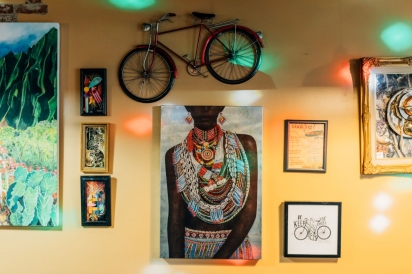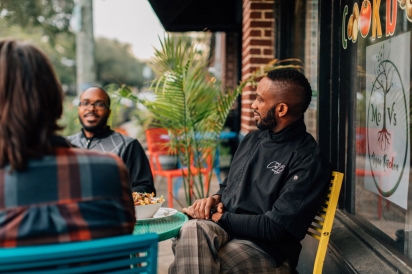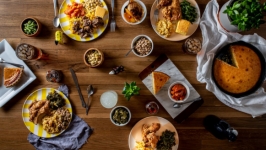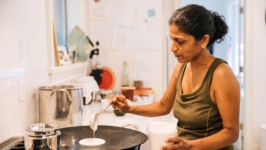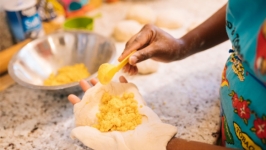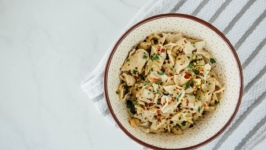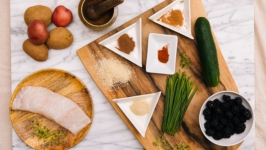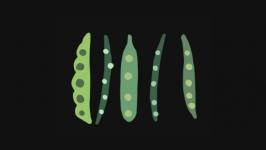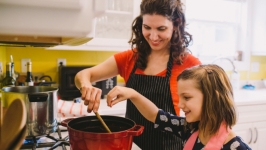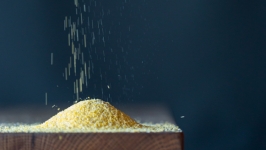Gullah Geechee Culinary Traditions
Anchoring a strip of Black-owned businesses on Pearl Street in Springfield is one of Northeast Florida’s most eclectic restaurants: The Cookbook. Together with vegan eatery Mo V’s, which symbiotically shares its storefront, The Cookbook serves up a mixture of gourmet cooking and traditional regional recipes, many based on those that owner Brandon Byers grew up eating. But this eatery is more than one of the more unique restaurants in town; The Cookbook is one of several making an intentional effort to preserve the foodways of the Gullah Geechee people.
The Gullah Geechee (also known as simply Gullah or Geechee, depending on the region) are the descendants of West and Central Africans enslaved on the plantations of the Lowcountry, the coastal region stretching from Wilmington, North Carolina to St. Augustine. On the Sea Islands and creeksides, Gullah Geechee developed a discrete culture, language and foodways.
After emancipation, many Gullah Geechee families flocked to cities for new opportunities. While Savannah and Charleston are the more famous meccas, Jacksonville ultimately surpassed both. “Jacksonville, being the largest city in the Lowcountry, actually has the largest concentration of Gullah Geechee descendants in the U.S.,” says Ennis Davis, a Jacksonville historian, co-owner of The Jaxson magazine and a Gullah Geechee descendant. “We've got a very unique culture.”
According to Davis, food is one of the main ways Gullah Geechee culture has been preserved. The cuisine can be described as cooking rooted in West Africa, with some Native American and European influence, using ingredients available in the local environment. Common Gullah Geechee dishes include shrimp and grits, salmon or crab croquettes, she-crab soup, smoked mullet, collard greens and Hoppin’ John (a rice and peas dish).
Another widely known Gullah Geechee dish is the seafood boil, which generally combines shrimp, potatoes, corn, sausage and seasoning. Jacksonville is the epicenter of one variant of this, garlic crabs (blue crabs in garlic butter sauce), sold at dozens of crab houses across town, especially on the Northside.
Gullah Geechee cooking is rooted in the plantation era. Rice and grits were common rations given to the enslaved. To stretch things out, families might cook up a big pot of grains and supplement it with local herbs and vegetables grown in the garden and proteins from the region’s fertile waters. “One of the things about the Gullah Geechee is that people live off the land and environment,” says Davis. “The creeks here, there's lots of shrimp, there’s lots of fish, there's lots of oysters, so something like grits could be supplemented with shrimp to create a wholesome meal.”
Fresh, seasonal ingredients and community sustainability are key elements of Gullah Geechee foodways, says Saundra Morene, president of the Jacksonville Gullah Geechee Nation, an organization working to preserve the community’s traditions. Morene grew up in Jacksonville’s Eastside, a historic neighborhood steeped in the traditions of its Gullah Geechee founders. Her family grew vegetables in the community garden and traded for what they didn’t grow. “The house had a lot of flavors going through it,” she says. “Whatever was in season is what we ate.”
Among those Morene has worked with is Brandon Byers, who learned much about his heritage from her. “[The Cookbook] is a prime example of how Gullah has blended into the community,” she says.
For Byers, preserving traditional cooking is a family affair. He spent years in the local food industry before opening The Cookbook in 2017, and his parents owned BJ’s Grocery in the Durkeeville neighborhood northwest of downtown Jacksonville for more than 20 years. His aunt, Marsha Dean Phelts, compiled a much-lauded cookbook celebrating a famed local Black historical area. “If you know a lot about Gullah Geechee, you’ve probably heard of my aunt,” he says. “She started The American Beach Cookbook where a lot of my family's recipes came out of.”
Byers strives to incorporate his Gullah Geechee heritage throughout The Cookbook. He patronizes local farmers and markets for the freshest ingredients, and even grows spices at the restaurant. “We started in a small way over here with our own jalapeños, bell peppers, red hot chili peppers,” he says. “And we have herbs, like our chocolate mint, that we'll pull for teas.” For spices they don’t grow, they head next door to Auntie Peaches, a neighborhood apothecary. “We try to keep everything local and to recycle that dollar back into our community,” he says.
Unfortunately, Jacksonville’s deep Gullah Geechee heritage is underknown even among descendants. One reason is that Gullah Geechee dishes are ubiquitous, staples of the city’s Southern and soul food restaurants. “Shrimp and grits is something you can find all over town, though I don't think people know that it dates back to slavery,” says Davis. Morene agrees. “It now has been so deeply embedded into the fabric of Jacksonville that you have to first be able to identify what is Gullah and Geechee and what isn't.”
Thanks to folks like Davis, Byers and Morene, Jacksonville’s Gullah Geechee heritage is starting to get its due. In the meantime, what the city lacks in marketing and food tourism, it makes up for in quality. “I’ve traveled to Savannah and Charleston, hit up the Gullah Geechee restaurants,” says Davis. “I will tell you if you want to go to a place and overpay for a thing of Hoppin’ John or field peas and fried chicken, go for it.” It’s Jacksonville that offers a more authentic and affordable experience. “You can find a lot of this stuff all over town and it tastes a lot better than what you're going to find in some of the more touristy areas.”
The Cookbook Restaurant, 1827 N Pearl Street in Springfield, Jacksonville, 904-802-7080


